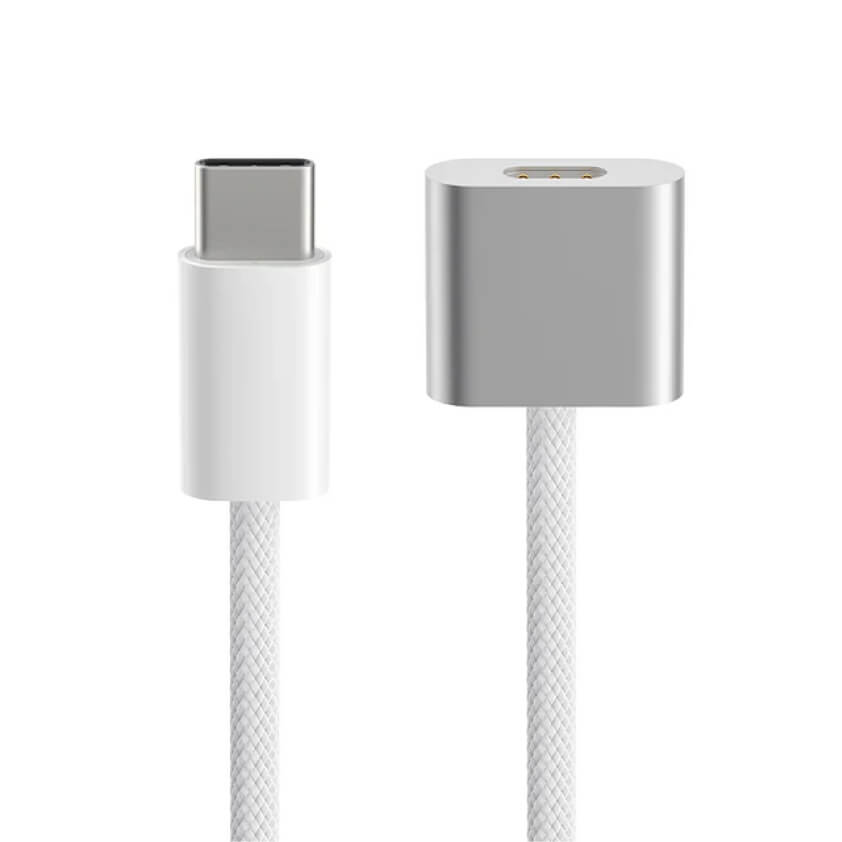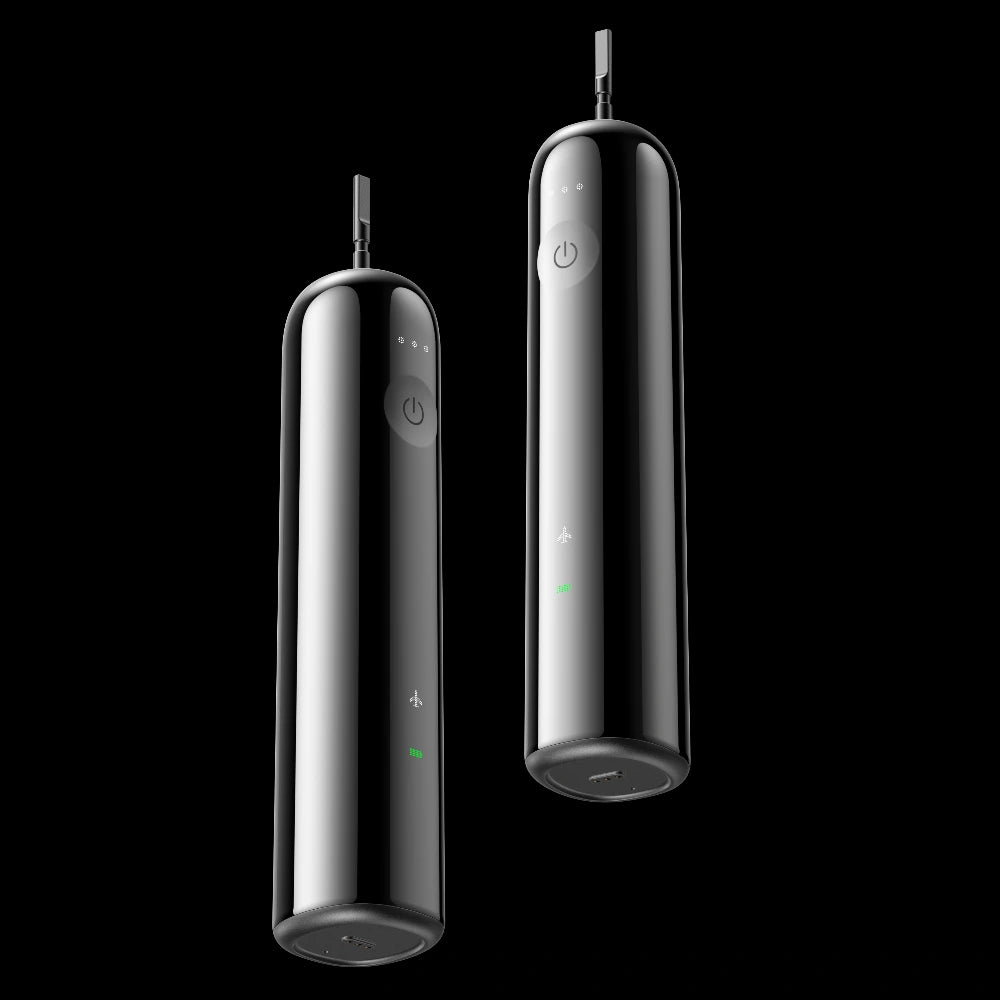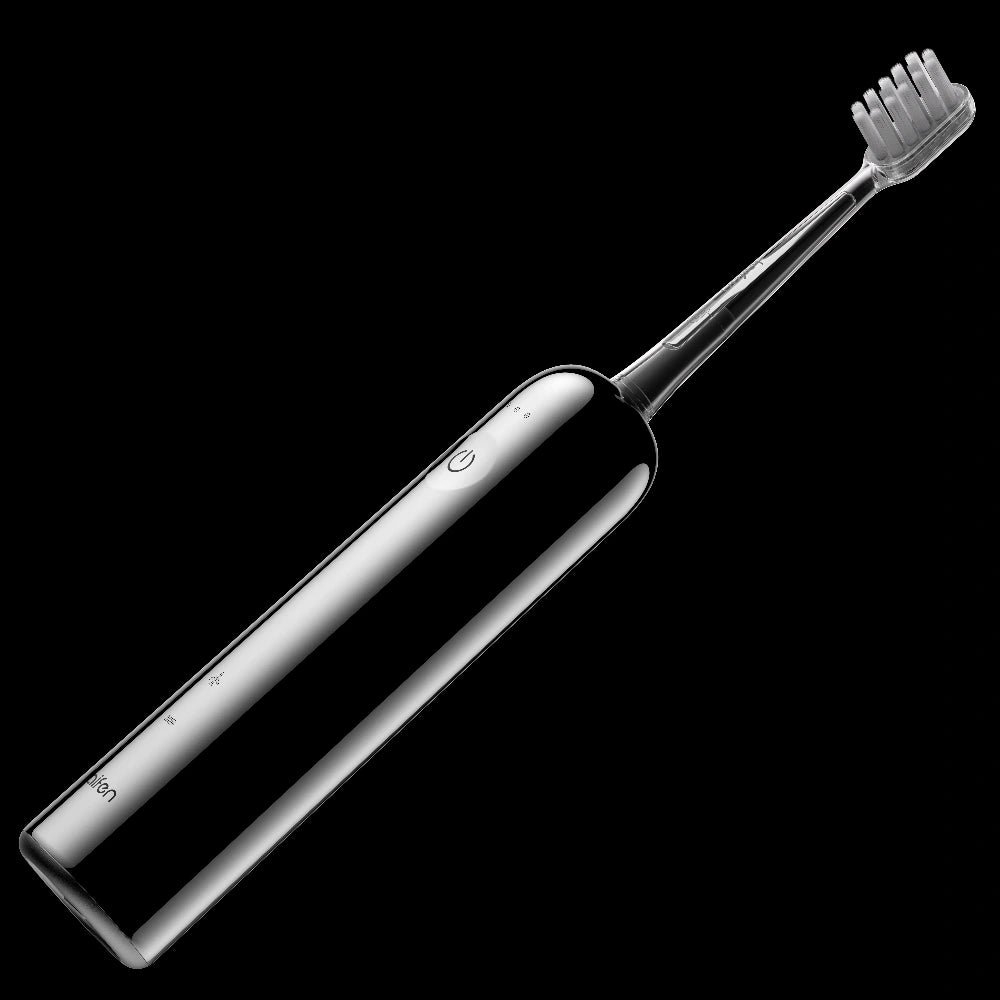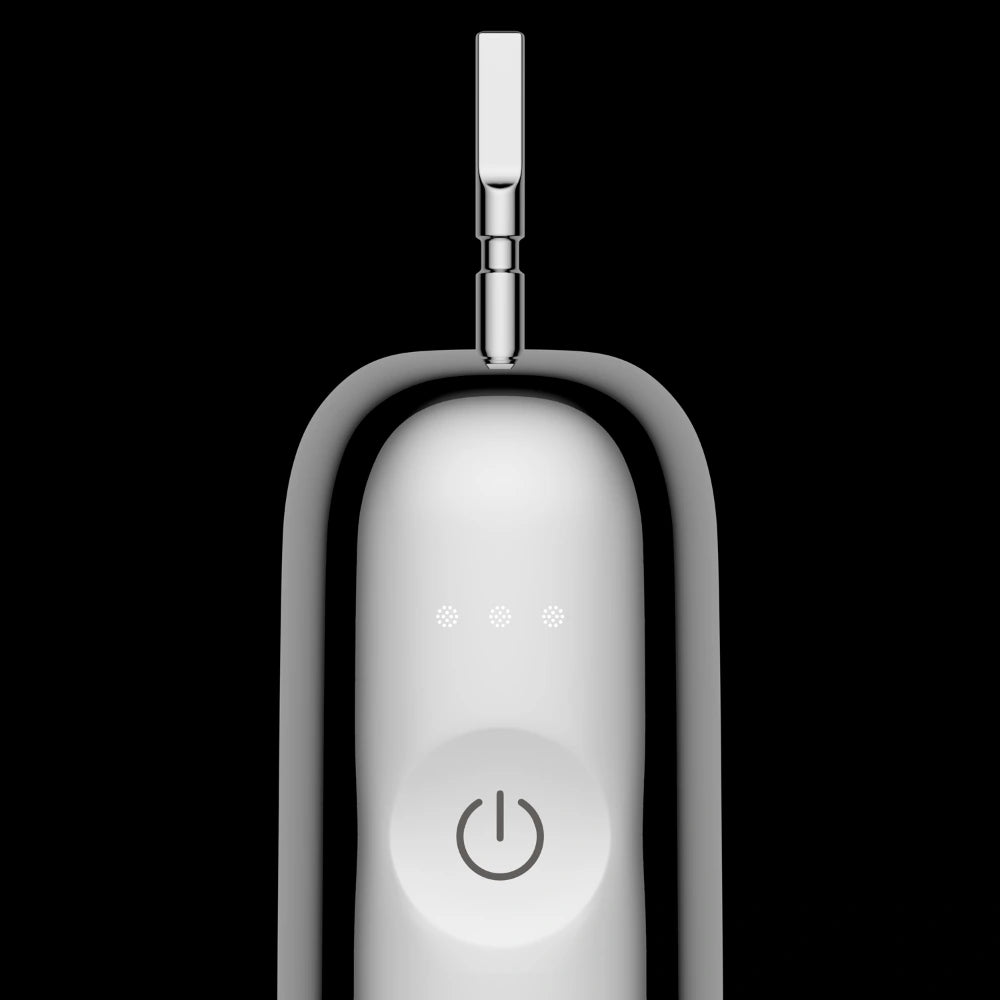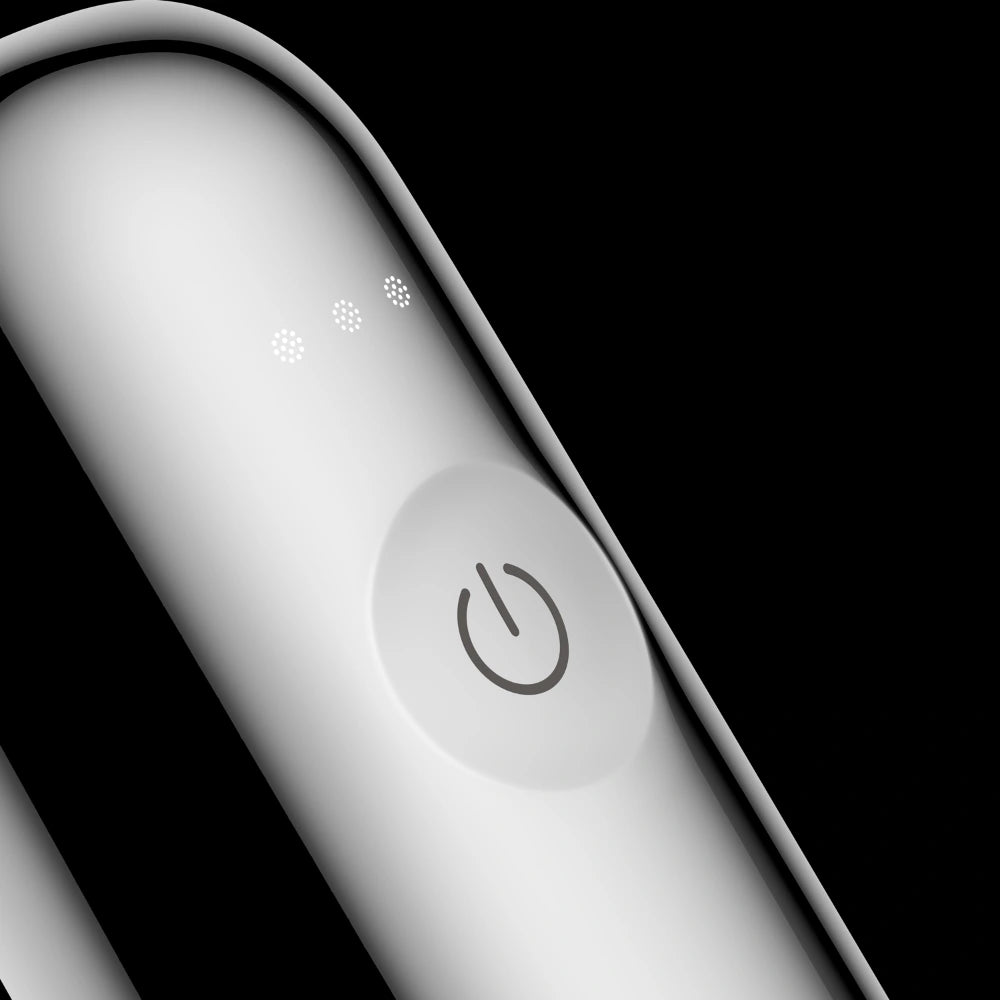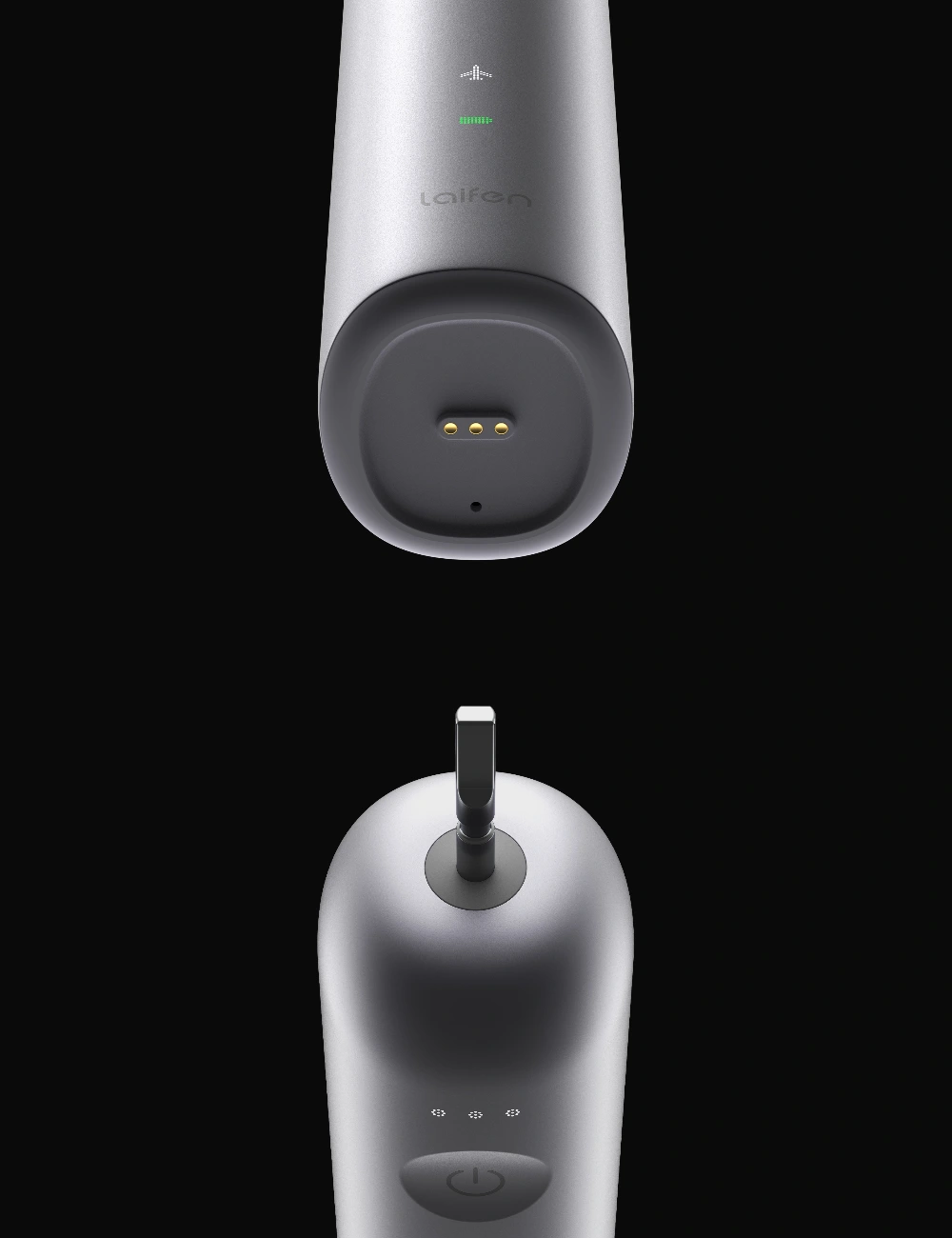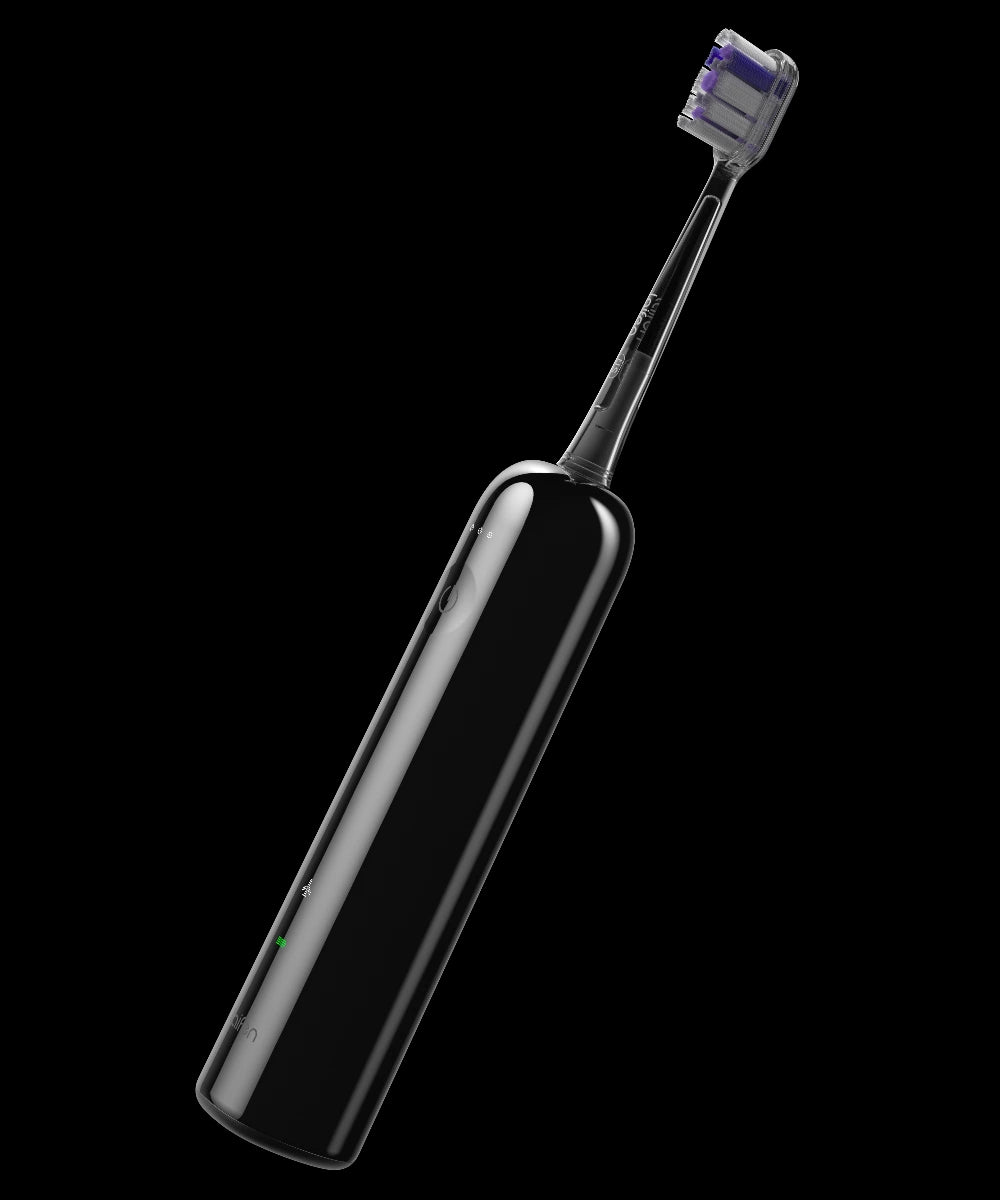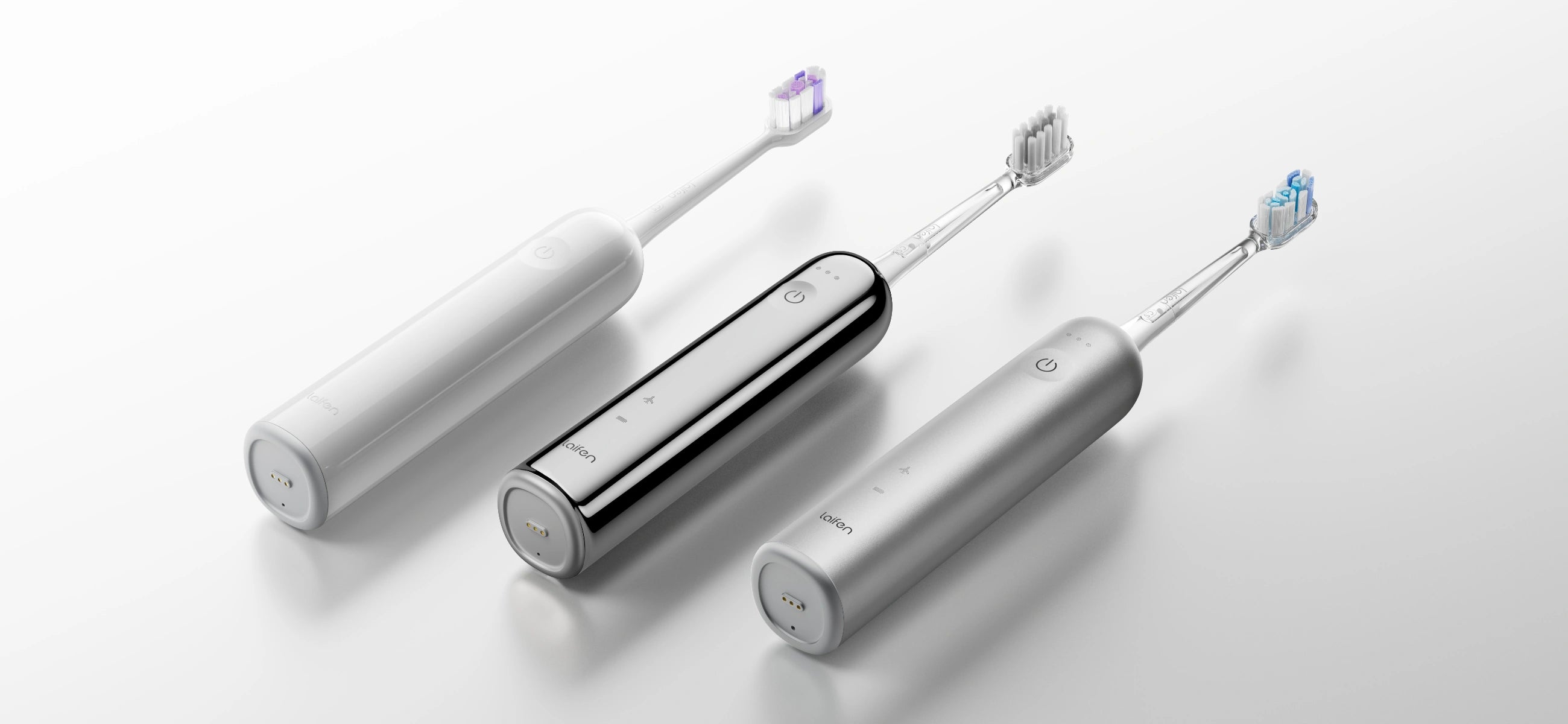
You have to admit that sensitive teeth and receding gums can feel like a one-two punch. Enter the knight in shining armor: the best electric toothbrush. With gentle vibrations and precise bristle movements, electric toothbrushes provide effective cleaning without exacerbating gum recession.
Opting for toothpaste designed for sensitive teeth and incorporating fluoride mouthwash can further alleviate discomfort. And remember, a visit to the dentist for professional advice and regular check-ups ensures your pearly whites remain gleaming and gum-friendly for years to come.
Laifen Wave electric toothbrush - Our best solution for receding gums
We recommend you give our best product Wave a try. Laifen Wave boasts gentle yet powerful vibrations, providing thorough cleaning while minimizing irritation to sensitive gums. Its soft bristles and customizable settings ensure a comfortable brushing experience, ideal for those with receding gums.
Here is one of our users' feedback about this selected from the reviews:
"I've struggled with receding gums for years, but since switching to Laifen Wave, I've noticed a significant improvement. The gentle yet thorough cleaning action has made brushing a breeze, and I feel confident knowing I'm taking proactive steps to address my gum health." - Sarah J.
To maximize its effectiveness in addressing receding gums, apply gentle pressure and use circular motions along the gumline. Utilize the built-in pressure sensor to prevent over-brushing, a common culprit in gum recession. Consistent use, coupled with a fluoride toothpaste, promotes gum health and prevents further recession.
In addition to using Laifen Wave, incorporate other oral care practices to support gum health. Floss daily to remove plaque buildup between teeth, and consider using a fluoride mouthwash to strengthen enamel. Regular dental check-ups are crucial for monitoring gum health and addressing any concerns promptly. With Laifen Wave and proactive oral care, you can tackle receding gums head-on for a healthier smile.
Why are electric toothbrushes good for receding gums?
In this round, let's discuss the benefits of electric toothbrushes.
Gentle
Electric toothbrushes typically have oscillating or vibrating brush heads, which provide gentle yet effective cleaning. This reduces the risk of causing further irritation to sensitive gums compared to manual brushing.
Consistent
Many electric toothbrushes come with pressure sensors that alert users when they're applying too much pressure. This helps prevent over-brushing, which can contribute to gum recession.
Efficient
The rapid movements of electric toothbrush bristles can more effectively remove plaque from teeth and along the gumline. This reduces the risk of gum disease, a common cause of gum recession.
Smart
Electric toothbrushes often have built-in timers that ensure users brush for the recommended two minutes. This promotes thorough cleaning and helps prevent excessive brushing that could harm gums.
Customizable
Some electric toothbrush models offer different brushing modes and intensity levels, allowing users to tailor their brushing experience to their specific needs, including sensitive gums.
How do you treat sensitive teeth and receding gums?
Let me show with you some treatments you can try in this part:
-
Opt for a soft-bristled toothbrush to minimize irritation to sensitive gums and enamel. Gentle brushing techniques, using circular motions rather than vigorous scrubbing, can also help.
-
Choose a toothpaste formulated for sensitive teeth, containing ingredients like potassium nitrate or fluoride. These ingredients help block pain signals and strengthen enamel, reducing sensitivity.
-
Maintain good oral hygiene habits, including brushing twice daily and flossing at least once a day. This helps remove plaque buildup and prevents gum disease, a common cause of gum recession and sensitivity.
-
Limit consumption of acidic and sugary foods and beverages, as they can erode enamel and exacerbate sensitivity. Rinse your mouth with water after consuming acidic foods to help neutralize acid.
-
Your dentist may recommend professional fluoride treatments to strengthen enamel and reduce sensitivity. This can be applied in-office or prescribed as a fluoride mouthwash or gel for home use.
-
If you grind or clench your teeth (bruxism), talk to your dentist about wearing a mouthguard at night to protect your teeth and gums from further damage.
-
Depending on the severity of gum recession and sensitivity, your dentist may recommend treatments such as gum grafting to cover exposed tooth roots or periodontal therapy to address gum disease.
-
Schedule regular dental check-ups and cleanings to monitor the health of your teeth and gums. Early detection and treatment of issues can prevent them from worsening.
How do I stop my gums from receding when I brush my teeth?
To prevent gum recession while brushing your teeth, it's crucial to prioritize gentle care and proper technique. Start by selecting a toothbrush with soft bristles, which are less likely to cause irritation or damage to the delicate gum tissue. Opting for a soft-bristled toothbrush allows for effective cleaning while minimizing the risk of further gum recession.
Pay attention to your brushing technique. Use gentle, circular motions along the gumline rather than aggressive scrubbing. Applying too much pressure or using a harsh brushing technique can exacerbate gum recession and lead to other oral health issues. Remember to angle the toothbrush properly, holding it at a 45-degree angle to the gumline for optimal cleaning without causing harm.
Finally, prioritize consistency in your oral hygiene routine. Brush your teeth twice daily for at least two minutes each time, ensuring thorough cleaning without unnecessary pressure on the gums. Regular dental check-ups can also help monitor gum health and address any concerns promptly, preventing further gum recession and promoting overall oral health.













